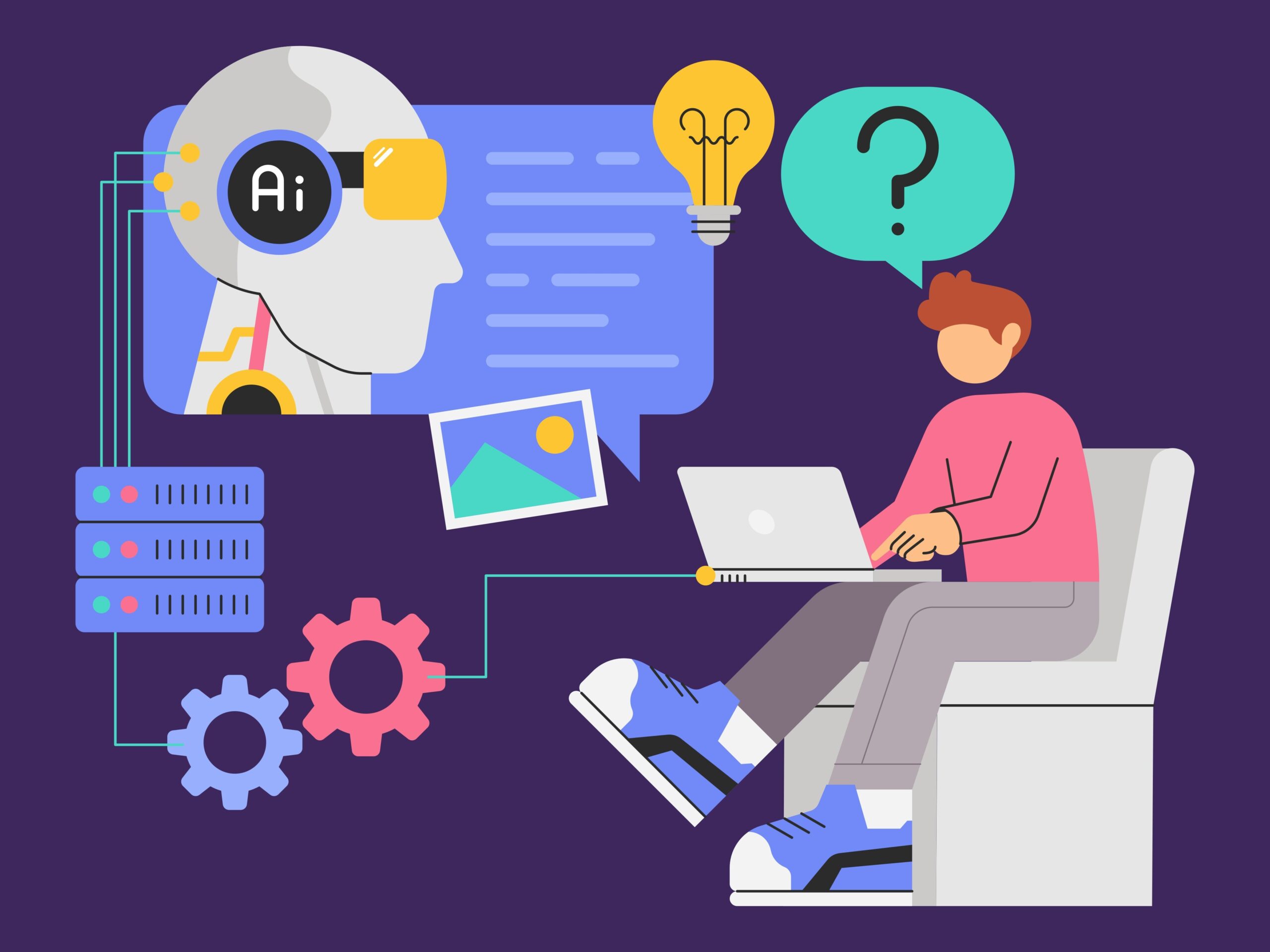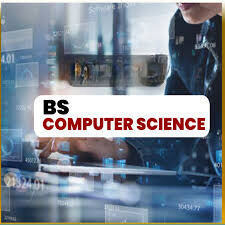Impact of AI on Job Markets is revolutionizing industries, transforming workflows, and reshaping job markets worldwide. While AI brings efficiency and innovation, it also raises concerns about job displacement and workforce adaptation. Understanding AI’s impact on employment is crucial for businesses, employees, and policymakers.
How Impact of AI on Job Markets Transforming
AI’s influence on the job market can be categorized into three key areas:
1. Job Automation and Displacement
Impact of AI on Job Markets machines and algorithms are replacing repetitive and routine tasks, particularly in industries like manufacturing, retail, and customer service. Jobs such as data entry, telemarketing, and basic clerical roles are increasingly automated, reducing the demand for human workers. Additionally, AI-driven robotics and software can handle complex but rule-based tasks, such as legal document analysis and financial auditing, further impacting traditional job roles.
2. Job Creation and Emerging Opportunities
While Impact of AI on Job Markets eliminates certain roles, it also creates new job opportunities. Emerging fields such as AI engineering, data science, cybersecurity, and AI ethics are growing rapidly. Companies require skilled professionals to develop, maintain, and regulate AI-driven technologies. Furthermore, AI has led to the growth of hybrid job roles, where human expertise is complemented by AI-powered tools, such as AI-assisted journalism, AI-driven healthcare diagnostics, and intelligent customer service management.
3. AI Augmenting Human Work
Rather than replacing humans entirely, AI is enhancing productivity in various industries. For example:
- Healthcare: AI assists doctors in diagnosing diseases and recommending treatments by analyzing vast datasets more efficiently than humans.
- Finance: AI-powered analytics help financial advisors make data-driven decisions, improve fraud detection, and enhance risk management.
- Marketing: AI-driven tools optimize advertising campaigns, enhance customer targeting, and personalize consumer experiences.
- Education: AI-powered virtual tutors and adaptive learning platforms assist educators in providing personalized learning experiences.
- Software Development: AI tools help developers by automating code generation, bug detection, and software testing, making the development process more efficient.
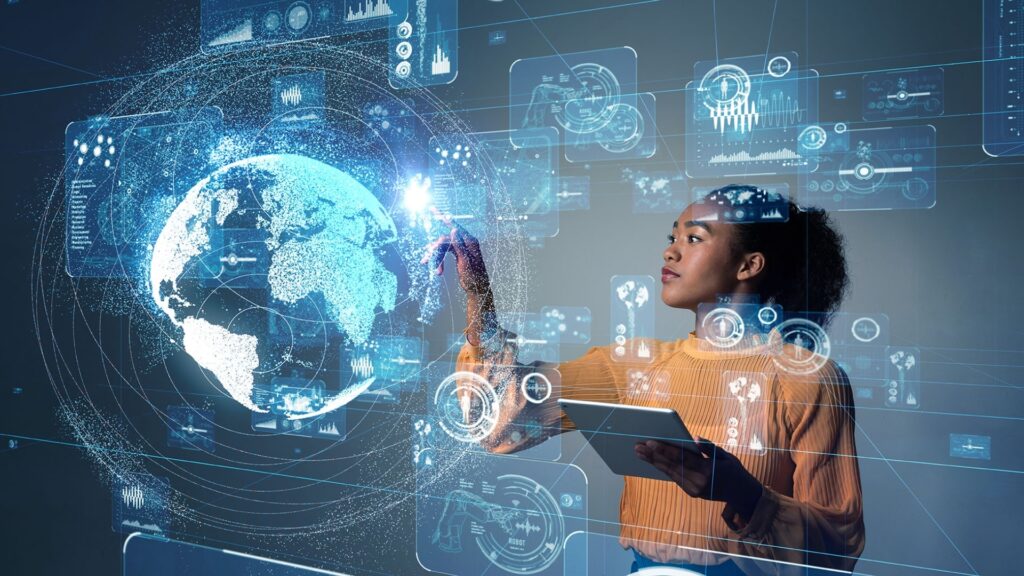
Industries Most Impact of AI on Job Markets
1. Manufacturing
AI-driven robots streamline assembly lines, reducing the need for manual labor while increasing efficiency. Automated quality control and predictive maintenance reduce downtime, improving overall production rates. AI-powered supply chain management helps manufacturers optimize inventory and logistics.
2. Retail and E-Commerce
AI-powered chatbots, personalized recommendations, and automated inventory management are reshaping the retail sector. AI-driven analytics enable retailers to predict consumer trends, optimize pricing strategies, and improve customer engagement. Smart checkout systems and cashier-less stores, like those implemented by Amazon Go, are changing the shopping experience.
3. Transportation and Logistics
Autonomous vehicles and AI-driven route optimization are transforming supply chain management and logistics. AI enhances predictive maintenance for fleet management, reducing operational costs. Self-driving trucks and AI-assisted delivery robots are being tested for last-mile delivery solutions, revolutionizing the logistics industry.
4. Finance and Banking
AI automates fraud detection, risk assessment, and customer service, improving efficiency in the financial sector. AI-driven chatbots handle customer inquiries, while machine learning algorithms analyze market trends to provide investment insights. AI also plays a crucial role in credit scoring and automated loan approval processes.
5. Healthcare
AI aids in medical imaging, drug discovery, and virtual health assistants, enhancing patient care and diagnostics. AI-driven predictive analytics help identify disease outbreaks, optimize hospital resource management, and personalize treatment plans. Robotic surgery and AI-powered prosthetics are also advancing the medical field.
6. Education
AI-powered learning platforms provide personalized tutoring, adaptive learning experiences, and automated grading. AI chatbots assist students with coursework, while AI-driven analytics help educators identify learning gaps and tailor teaching methods accordingly.
7. Legal and Compliance
AI-powered legal research tools automate document review, contract analysis, and compliance checks. AI assists law firms by reducing time spent on routine legal tasks, enabling lawyers to focus on complex cases and strategic decision-making.
8. Agriculture
AI-driven smart farming techniques optimize irrigation, pest control, and crop monitoring. AI-powered drones analyze soil conditions, while machine learning models predict crop yields and weather patterns to improve agricultural efficiency.
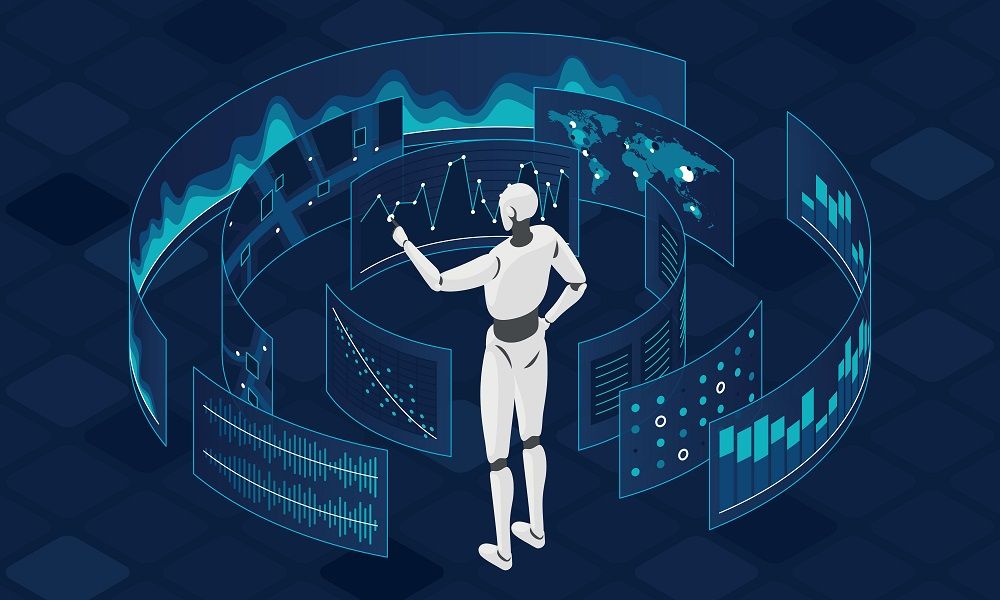
The Challenges of AI in Employment
Despite its benefits, AI poses several challenges:
- Job Displacement – Low-skilled workers face the risk of redundancy, as AI can perform repetitive and routine tasks more efficiently than humans. This could lead to increased unemployment rates in certain sectors if alternative employment opportunities are not created.
- Skills Gap – As AI takes over routine jobs, the demand for technical skills like data analysis, machine learning, and programming increases. Many workers need reskilling and upskilling to stay relevant, but access to such training programs can be limited.
- Economic Inequality – AI could widen the gap between high-skilled and low-skilled workers, leading to economic disparity. Those with expertise in AI-related fields may see rising salaries, while others struggle to find stable employment.
- Ethical Concerns – AI can introduce biases in hiring, lending, and decision-making processes if not properly regulated. Ensuring fairness, transparency, and accountability in AI-driven employment decisions is a critical challenge.
- Job Quality and Worker Rights – While AI enhances efficiency, it may also lead to increased job monitoring, loss of autonomy, and work standardization, raising concerns about worker rights and job satisfaction.
Preparing for an AI-Driven Future
To adapt to AI’s impact, businesses, governments, and individuals must take proactive steps:
- Reskilling and Upskilling: Investing in AI-related skills such as programming, data analysis, machine learning, and AI ethics will be essential for future job security. Companies should offer training programs to help employees transition into AI-compatible roles.
- Lifelong Learning: The job market is evolving rapidly due to AI advancements. Continuous education through online courses, workshops, and certifications can help workers stay competitive.
- Policy and Regulation: Governments should implement policies that promote fair AI adoption. This includes supporting displaced workers, enforcing ethical AI practices, and ensuring AI-driven job automation does not disproportionately affect vulnerable groups.
- Entrepreneurial Opportunities: AI is opening new avenues for startups and innovation. Entrepreneurs can leverage AI to create new business models, improve service delivery, and develop AI-powered tools to enhance productivity.
- Human-AI Collaboration: Instead of viewing AI as a threat, businesses and employees should focus on integrating AI into their workflows. AI can handle repetitive tasks, allowing humans to focus on creative, strategic, and emotionally intelligent roles.
- Universal Basic Income (UBI) and Social Safety Nets: Some experts propose financial support systems like UBI to counteract job displacement caused by AI. Governments may need to consider social programs to ensure financial security for affected workers.
Frequently Asked Questions (FAQs)
1. Will AI completely replace human jobs?
Not entirely. While AI will automate certain tasks, it will also create new roles requiring human oversight and expertise.
2. Which jobs are at the highest risk of AI automation?
Jobs involving repetitive and predictable tasks, such as data entry, factory work, and telemarketing, are most at risk.
3. How can workers prepare for AI-driven job markets?
Workers should focus on acquiring technical skills, digital literacy, and adaptability to thrive in an AI-influenced job market.
4. Is AI job displacement a global issue?
Yes, AI’s impact on employment is a worldwide phenomenon, though its effects vary by industry and region.
5. What new jobs will AI create?
AI will generate jobs in fields such as AI development, cybersecurity, robotics, AI ethics, and data science.
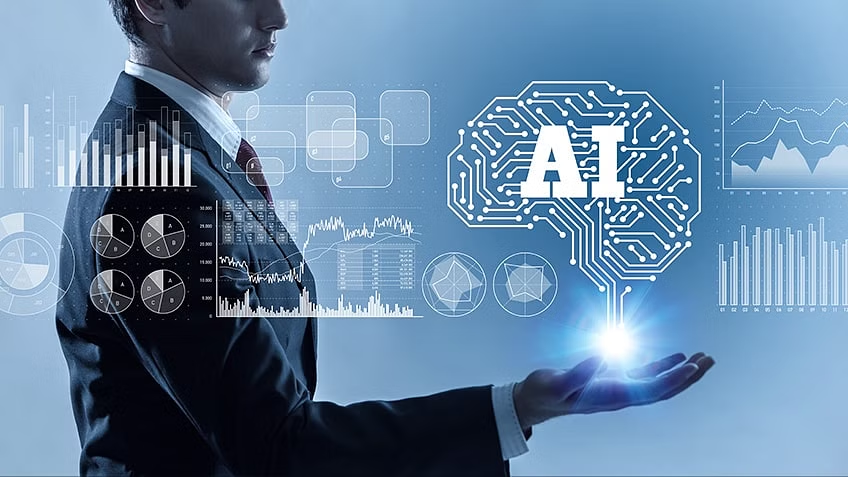
Conclusion
AI is undeniably transforming job markets, bringing both opportunities and challenges. While automation may replace certain roles, AI also creates new job avenues requiring advanced skills. To stay competitive, workers must embrace continuous learning, and businesses must adapt to AI-driven innovations. Governments should implement policies that support workforce transition and ensure ethical AI practices.
By understanding and preparing for AI’s impact, societies can leverage AI’s benefits while mitigating its challenges, leading to a balanced and innovative future workforce. Get in touch with us today!




